Ministry of Home Affairs
Ministry of Home Affairs and National Judicial Academy Bhopal hosts two-day National Conference on three New Criminal Laws
Under the leadership of Prime Minister Shri Narendra Modi, the Government of India is building a secure, transparent, and evidence-based criminal justice system
Under the guidance of Union Home Minister and Minister of Cooperation, Shri Amit Shah, the country has ushered in a new era of speedy justice
Union Home Secretary says, technology, timely investigation and justice delivery are core principles of New Criminal Laws
The New Criminal Laws are implemented throughout the country in letter and spirit - Union Home Secretary
Posted On:
09 NOV 2025 6:27PM by PIB Delhi
The Ministry of Home Affairs, Government of India and the National Judicial Academy Bhopal hosted a two-day National Conference on three New Criminal Laws in Bhopal on 8-9 November, 2025. The conference was attended by 120 participants from all states/UTs, covering three major pillars of criminal justice system, i.e., Judiciary, Prosecution and Police. The resource persons were drawn from academic institutions and serving senior practitioners.
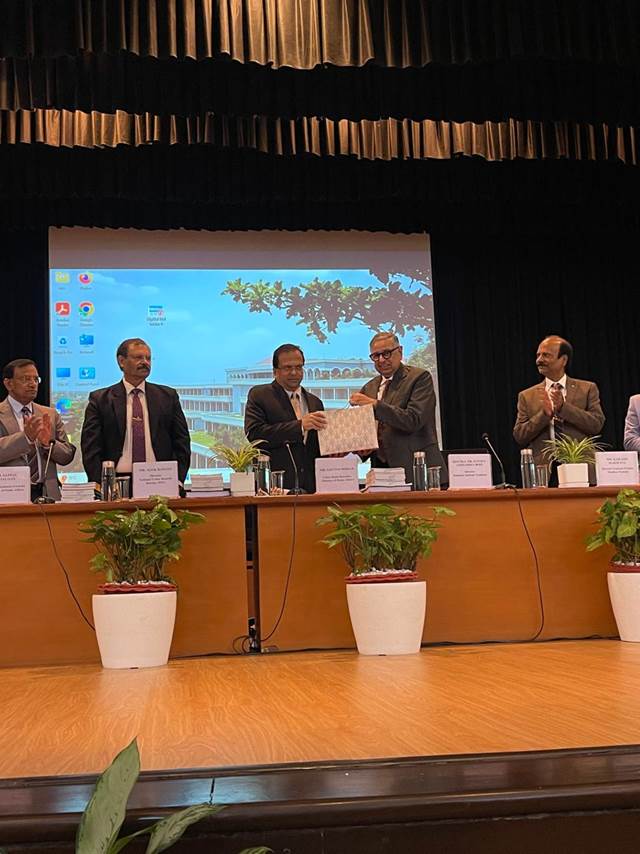
Addressing the two-Day National Conference, Union Home Secretary, Shri Govind Mohan said that under the leadership of Prime Minister Shri Narendra Modi, the Government of India is building a secure, transparent, and evidence-based criminal justice system. Shri Mohan said that under the guidance of Union Home Minister and Minister of Cooperation, Shri Amit Shah, the country has ushered in a new era of speedy justice. He reiterated that the new Criminal Laws aim at decolonizing India’s criminal justice system and making it more victim-centric and technology-enabled. He appreciated a key institutional contribution to the implementation of these laws from the National Judicial Academy, Bhopal, which has drafted model rules / standard operating procedures for key technological innovations introduced under the new framework. These include e- Sakshya (electronic evidence), e-Summon (digital issuance and delivery of legal notices), community service (as an alternative sentencing mechanism), and Nyay Shruti (audio-visual systems for accessible justice delivery).
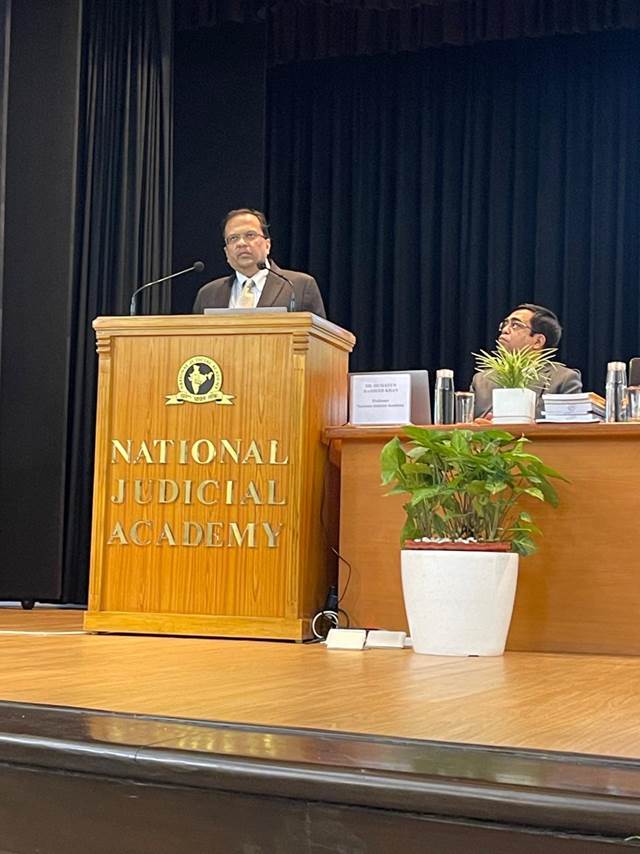
Union Home Secretary said technology forms the bedrock of the New Criminal Laws, which aim to ensure a faster and more efficient justice delivery system by addressing the long-standing issue of delays. The new laws introduce several provisions designed to minimize delays in investigation, trial, and other procedural stages. He said that the e-Committee of the Hon’ble Supreme Court of India has played a pivotal role in driving the technological integration necessary for effective implementation of the new laws.
Union Home Secretary said that going forward, the focus must now shift to sustained adoption, continuous improvement, and institutionalization of the reforms introduced under the three new criminal laws. State Governments should establish dedicated monitoring mechanisms to assess the progress of implementation, identify operational bottlenecks, and ensure timely updates of rules, notifications, and SOPs in alignment with evolving judicial and technological needs. Police departments must prioritize complete digitization of investigation and prosecution workflows, ensuring that systems such as e- Sakshya, e-Summons and ICJS are used as the default mode of operation.
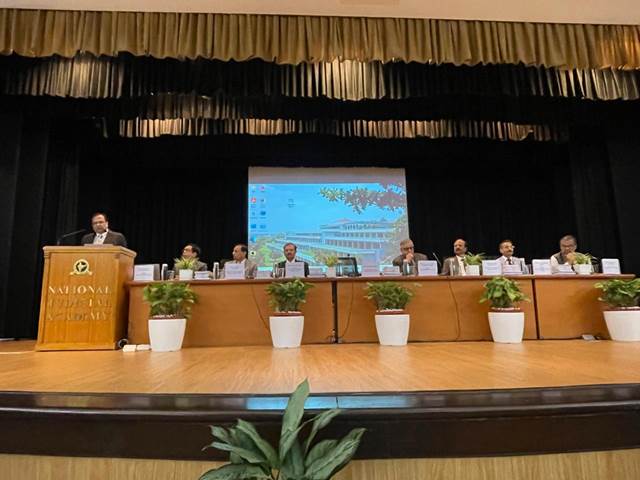
The judiciary, guided by the e-Committee of the Hon’ble Supreme Court, National Judicial Academy and State Judicial Academies, should continue leading efforts in judicial process digitization, ensuring full integration of court systems with police and prosecution platforms. Regular feedback loops between the pillars namely police, prosecution, forensics, prisons and judiciary should be institutionalized for real-time issue resolution and improvement of digital workflows. Collectively, all stakeholders must foster a culture of collaboration, data-driven decision-making, and continuous innovation to fully realize the vision of a modern, efficient, and technology-enabled criminal justice system envisioned under the new laws.
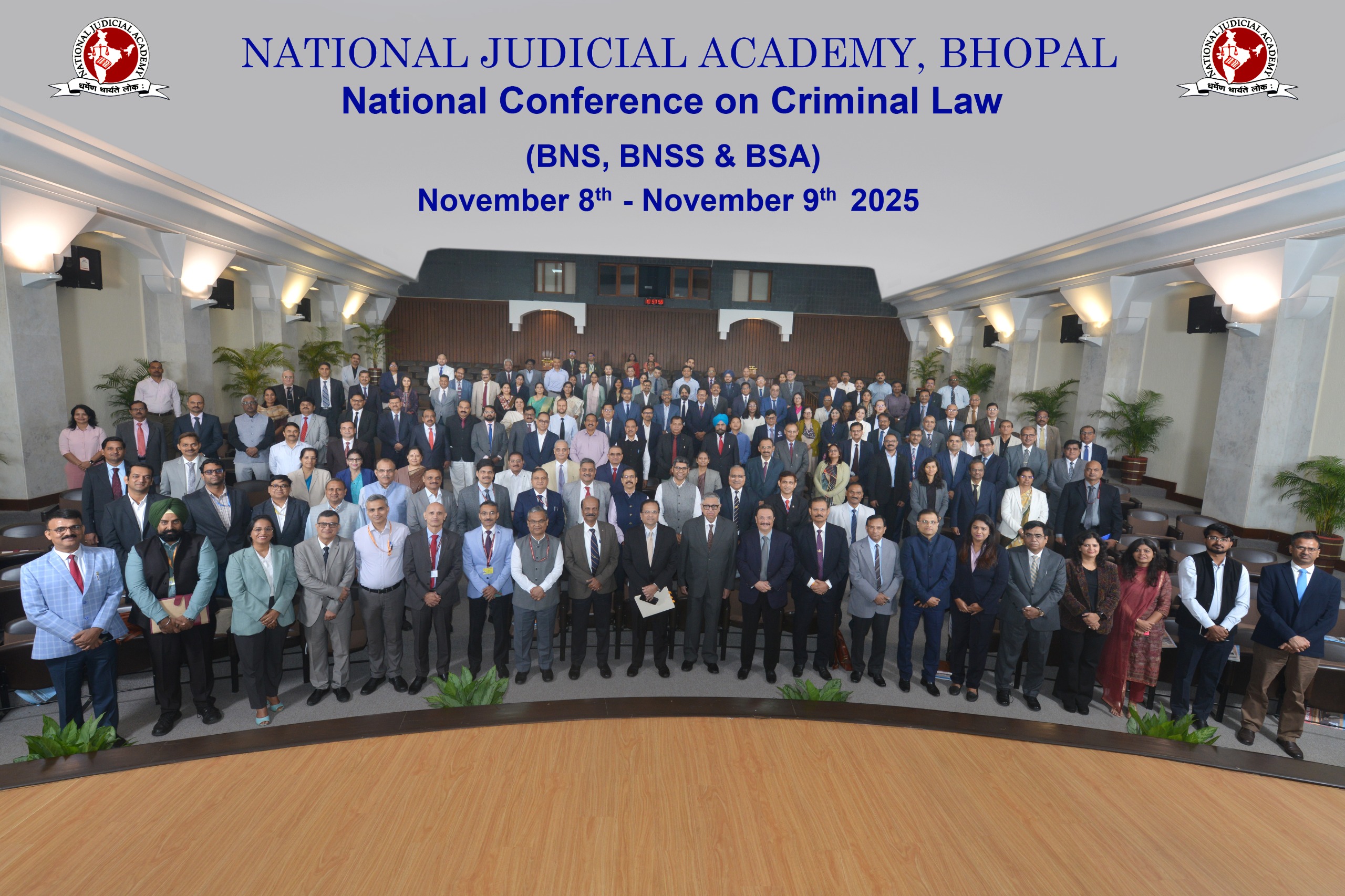
Hon’ble Justice Shri Aniruddha Bose, Director of the National Judicial Academy, said that this was a unique occasion where three pillars of the Criminal Justice System — Police, Prosecution, and Judiciary — had come together. He complimented the Ministry of Home Affairs for conceiving the idea of a joint capacity-building programme. Speaking about the challenges faced by investigators, prosecutors, and the judiciary in implementation, Hon’ble Justice Bose emphasized the importance of keeping pace with new technological innovations, ICT applications, and the concepts introduced under the new framework. He reiterated that such capacity-building programs provide an important opportunity for participants to learn, collaborate, and strengthen their understanding of the new legal and technological landscape.
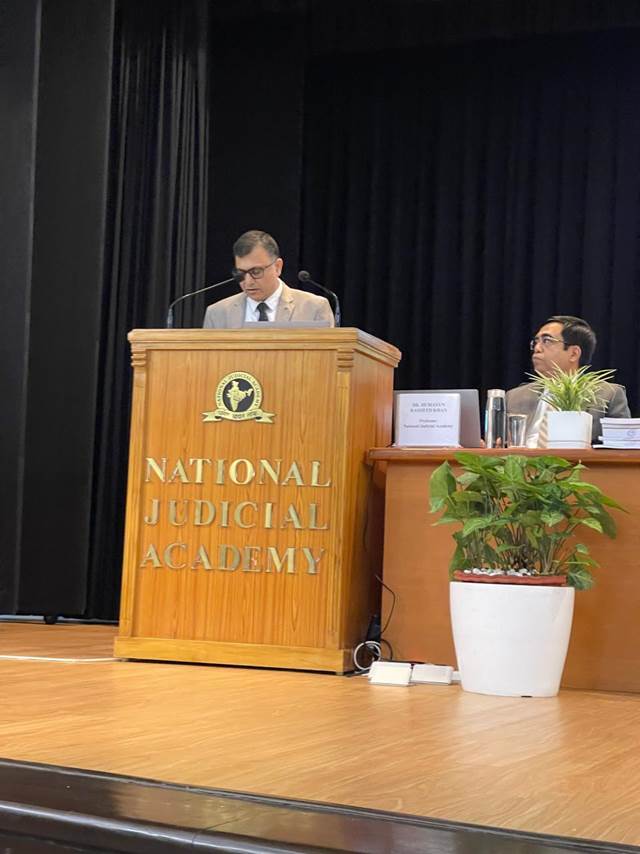
ABOUT THE CONFERENCE
The two-day National Conference, provided a unique and invaluable forum where three key pillars of the Criminal Justice System — Police, Prosecution, and Judiciary — will come together. The agenda included in-depth discussions on the substantive reforms introduced under these new laws, the techno-centric approach to scientific investigation, digital transformation in the judicial process, the handling of digital evidence, the role of the Directorate of Prosecution, and the new timelines designed as an effective mechanism for delivering time-bound justice. The program also featured insightful case studies, interactive sessions, and deliberations with eminent legal experts, members of the judiciary and police, as well as hands-on experience with the digital platforms that have been developed.
It is to be noted that notifications on e-Sakshya have been issued by 26 States/UTs, on e-Summons by 24 States/UTs, on Nyaya-Shruti (Videoconferencing) by 16 Hon’ble High Courts covering 20 States/UTs and on Community Service as punishment by 28 States/UTs.
Under New Criminal Laws, training of 15,30,790 Police Officers, 12,100 Prosecution Officers, 43,941 Prison Officers, 3,036 Forensic Scientists and 18,884 Judicial Officers have been completed.
As on today around 50 lakh, FIRs are registered under the Bharatiya Nyaya Sanhita (BNS). More than 33 lakh charge sheets or final reports filed; 22 lakh Sakshya IDs have been created. More than 14 Lakh victims received automated case updates through digital notifications. More than 38 thousand Zero FIRs registered since 01st July 2024.
*****
RK / RR / PS
(Release ID: 2188068)
Visitor Counter : 1978